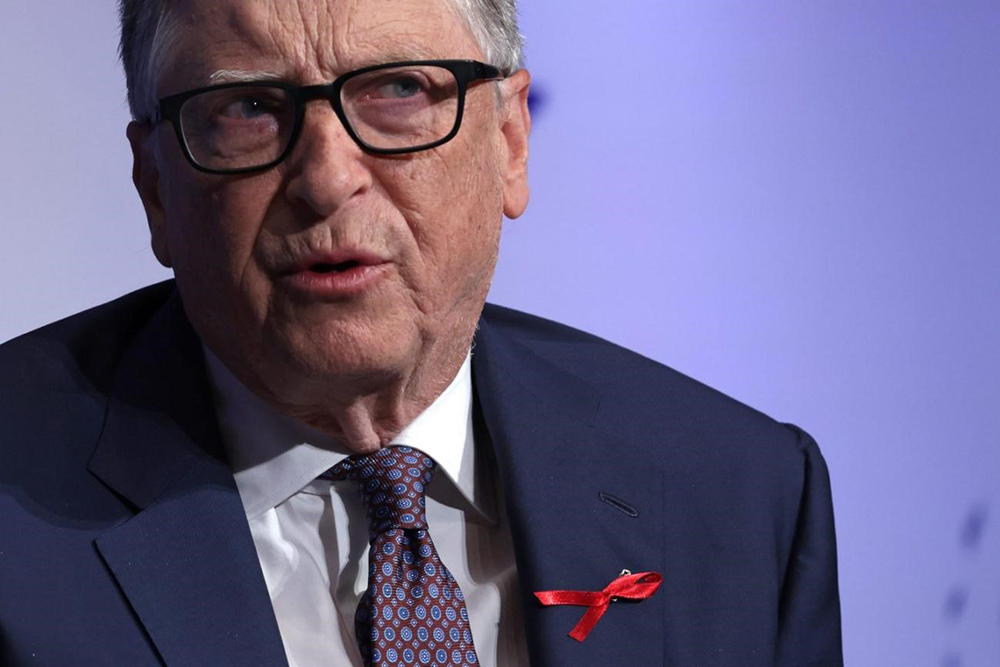?

眾所周知,微軟公司(Microsoft)的聯合創始人比爾·蓋茨長期看好人工智能及其能夠幫助實現創新加速的前景。他認為諸如OpenAI的ChatGPT聊天機器人之類的人工智能工具是兩項真正具有革命性的技術之一(另一個例子是圖形用戶界面,即計算領域的數字圖標和按鈕)。
現在,蓋茨表示“人工智能時代已經開啟”,人工智能不僅可以提高生產力,還有助于解決不平等等社會問題。他認為,如果政府和慈善機構能夠推出正確的政策,將資金投入到最亟需的地方,這項技術就可以幫助醫療和教育不足的國家釋放資源,改善人們獲得醫療和教育的機會。
“我一直在思考人工智能可以如何減少全球最嚴重的不平等現象。”蓋茨于3月21日在一篇博文中說道。“首先,它們能夠用來完成提交保險索賠、處理文書、起草醫生的來訪記錄等工作任務,從而幫助醫療工作者最大化利用自己的時間。”
蓋茨指出,許多發展中國家難以招收到足夠多的醫生,往往進一步加劇了富人和弱勢群體之間的不平等。他說,如果每一位醫療從業人員都能夠使用人工智能工具,更好地為患者提供關于最優方案的建議,就能夠為更多有需要的人服務。同時,在教育領域,人工智能可以協助訓練學生,讓他們在考試中拿到更高的分數。
蓋茨指出,建立這樣的系統需要多年的測試和政府、慈善機構和企業的不懈努力,才能夠使人工智能成為解決方案的一部分,而不是使問題惡化。只有這樣,才可以讓所有人受益,而不僅僅是用得起這些技術的富人。
“政府和慈善機構需要發揮重要作用,確保它能夠減少不平等,而不是加劇不平等。這是我自己在開展人工智能相關工作時的優先事項。”蓋茨表示。
人工智能具有解決影響整個國家和整個群體的問題的潛力,但相伴而生的是人工智能自身的威脅,蓋茨承認,這項技術仍然存在局限性。
“人們需要看到證據,證明健康領域的人工智能總體上是有益的,盡管它們并不完美,還會犯錯誤。”蓋茨說,“這些人工智能必須經過非常仔細的測試,得到合理的監管,這就意味著相較于其他領域,在應用前需要經過更多的時間。”
他指出,人工智能有時會出錯,會讓人恍惚,它們會返回不準確或虛構的信息,如果掌握在錯誤的人手中,可能就會因為濫用而構成威脅。當然,人工智能自身也可能失控,成為人類的威脅。
盡管存在這些風險,蓋茨仍然認為人工智能技術潛力巨大。
“整個行業都將圍繞它重新定位。企業將因為能否出色使用人工智能而產生區分。”他表示。
這位億萬富翁慈善家長期支持人工智能,主張人工智能的好處遠大于威脅。首先,他不認為人工智能會對就業構成威脅。他說,如果說有什么區別的話,那就是人工智能可以通過提高效率來改善人們的工作方式。
作為半個世紀前助力發起計算機革命(這場革命也同樣引發了人們對就業機會減少的類似擔憂)的人,蓋茨稱,人工智能的發展“和個人電腦、互聯網一樣重要”。今年早些時候,在Reddit的Ask Me Anything會議上,他盛贊人工智能是一種“讓人看到未來”的工具。
蓋茨表示,人們對任何革命性技術都會產生擔憂,這很正常,但他補充道,人工智能只是其中的一個例子,可以用它來實現真正的改變。(財富中文網)
譯者:Agatha
眾所周知,微軟公司(Microsoft)的聯合創始人比爾·蓋茨長期看好人工智能及其能夠幫助實現創新加速的前景。他認為諸如OpenAI的ChatGPT聊天機器人之類的人工智能工具是兩項真正具有革命性的技術之一(另一個例子是圖形用戶界面,即計算領域的數字圖標和按鈕)。
現在,蓋茨表示“人工智能時代已經開啟”,人工智能不僅可以提高生產力,還有助于解決不平等等社會問題。他認為,如果政府和慈善機構能夠推出正確的政策,將資金投入到最亟需的地方,這項技術就可以幫助醫療和教育不足的國家釋放資源,改善人們獲得醫療和教育的機會。
“我一直在思考人工智能可以如何減少全球最嚴重的不平等現象。”蓋茨于3月21日在一篇博文中說道。“首先,它們能夠用來完成提交保險索賠、處理文書、起草醫生的來訪記錄等工作任務,從而幫助醫療工作者最大化利用自己的時間。”
蓋茨指出,許多發展中國家難以招收到足夠多的醫生,往往進一步加劇了富人和弱勢群體之間的不平等。他說,如果每一位醫療從業人員都能夠使用人工智能工具,更好地為患者提供關于最優方案的建議,就能夠為更多有需要的人服務。同時,在教育領域,人工智能可以協助訓練學生,讓他們在考試中拿到更高的分數。
蓋茨指出,建立這樣的系統需要多年的測試和政府、慈善機構和企業的不懈努力,才能夠使人工智能成為解決方案的一部分,而不是使問題惡化。只有這樣,才可以讓所有人受益,而不僅僅是用得起這些技術的富人。
“政府和慈善機構需要發揮重要作用,確保它能夠減少不平等,而不是加劇不平等。這是我自己在開展人工智能相關工作時的優先事項。”蓋茨表示。
人工智能具有解決影響整個國家和整個群體的問題的潛力,但相伴而生的是人工智能自身的威脅,蓋茨承認,這項技術仍然存在局限性。
“人們需要看到證據,證明健康領域的人工智能總體上是有益的,盡管它們并不完美,還會犯錯誤。”蓋茨說,“這些人工智能必須經過非常仔細的測試,得到合理的監管,這就意味著相較于其他領域,在應用前需要經過更多的時間。”
他指出,人工智能有時會出錯,會讓人恍惚,它們會返回不準確或虛構的信息,如果掌握在錯誤的人手中,可能就會因為濫用而構成威脅。當然,人工智能自身也可能失控,成為人類的威脅。
盡管存在這些風險,蓋茨仍然認為人工智能技術潛力巨大。
“整個行業都將圍繞它重新定位。企業將因為能否出色使用人工智能而產生區分。”他表示。
這位億萬富翁慈善家長期支持人工智能,主張人工智能的好處遠大于威脅。首先,他不認為人工智能會對就業構成威脅。他說,如果說有什么區別的話,那就是人工智能可以通過提高效率來改善人們的工作方式。
作為半個世紀前助力發起計算機革命(這場革命也同樣引發了人們對就業機會減少的類似擔憂)的人,蓋茨稱,人工智能的發展“和個人電腦、互聯網一樣重要”。今年早些時候,在Reddit的Ask Me Anything會議上,他盛贊人工智能是一種“讓人看到未來”的工具。
蓋茨表示,人們對任何革命性技術都會產生擔憂,這很正常,但他補充道,人工智能只是其中的一個例子,可以用它來實現真正的改變。(財富中文網)
譯者:Agatha
Microsoft co-founder Bill Gates is famously optimistic about artificial intelligence and its promise to speed up innovation. He considers A.I. tools such as OpenAI’s ChatGPT chatbot to be one of two technologies that have been truly revolutionary (the other example was with graphic user interface, or digital icons and buttons, in computing).
Now Gates says the “age of A.I. has begun” and that it will not just improve productivity but also help fix societal problems like inequity. He thinks the technology can free resources and improve access to healthcare and education in countries that lack it if governments and philanthropies introduce the right policies and direct funds where they are most needed.
“I’ve been thinking a lot about how A.I. can reduce some of the world’s worst inequities,” Gates wrote in a blog post on March 21. “For one thing, they’ll help health-care workers make the most of their time by taking care of certain tasks for them—things like filing insurance claims, dealing with paperwork, and drafting notes from a doctor’s visit.”
Gates pointed out that a number of developing countries struggle with attracting enough doctors, which often worsens inequities between the wealthy and the disadvantaged. If every healthcare professional has access to A.I. tools to better advise patients on the best course of action, a lot more people in need can be served, he says. Meanwhile, in education, A.I. can assist with training students and help them get higher test scores.
Instituting such systems would take years of testing and persistent efforts by governments, philanthropies, and businesses for the A.I. to be part of the solution instead of worsening the problem, Gates said. In that way, the benefits would be accessible to all and not just the well-off who can afford to use such technologies.
“Governments and philanthropy will need to play a major role in ensuring that it reduces inequity and doesn’t contribute to it. This is the priority for my own work related to A.I.,” Gates wrote.
The potential of A.I. to solve problems affecting entire countries and communities comes with its own set of threats, and Gates acknowledges the technology is still limited.
“People will need to see evidence that health A.I.s are beneficial overall, even though they won’t be perfect and will make mistakes,” Gates wrote. “A.I.s have to be tested very carefully and properly regulated, which means it will take longer for them to be adopted than in other areas.”
A.I. can sometimes fumble or hallucinate by returning inaccurate or fictitious information and becoming a threat in the hands of wrong people who misuse it, he said. Then, of course, there is the possibility of A.I. running amok and becoming a threat to humans.
Despite these risks, Gates still thinks A.I. technology has great potential.
“Entire industries will reorient around it. Businesses will distinguish themselves by how well they use it,” he wrote.
The billionaire philanthropist has long supported A.I. and advocated that its benefits far outweigh its dangers. For one, he doesn’t see A.I. as a threat to jobs. If anything, it could improve how people work by increasing efficiency, he says.
As the person who helped to start a computer revolution half a century ago, which also sparked similar concerns about killing jobs, he said A.I. ‘s development is “every bit as important as the PC, as the internet.” Earlier this year, during a Reddit Ask Me Anything session, he touted A.I. as a tool that “gives a glimpse of what is to come.”
It’s normal for people to raise concerns about any revolutionary technology, Gates said, but he added that A.I. is just one such example and that it can be used to accomplish real change.






